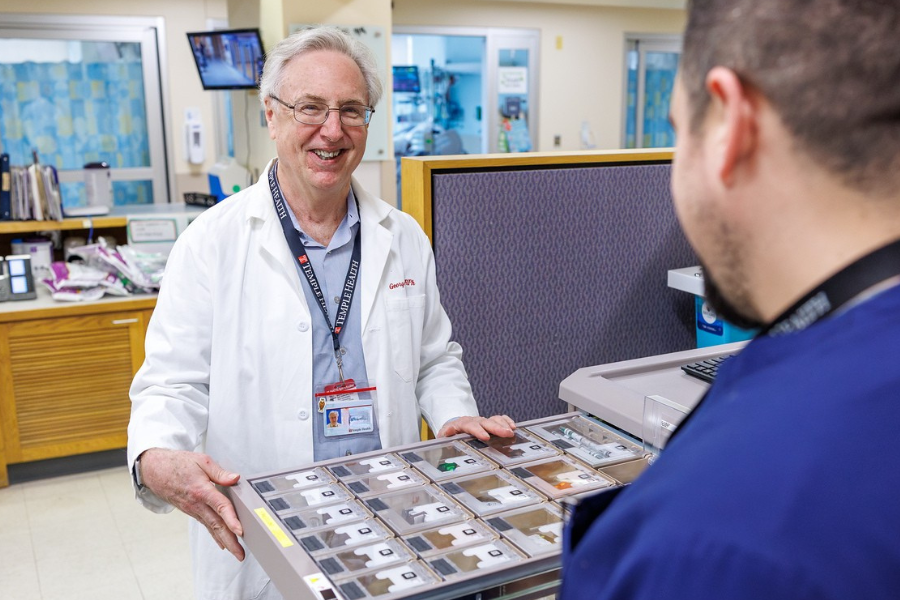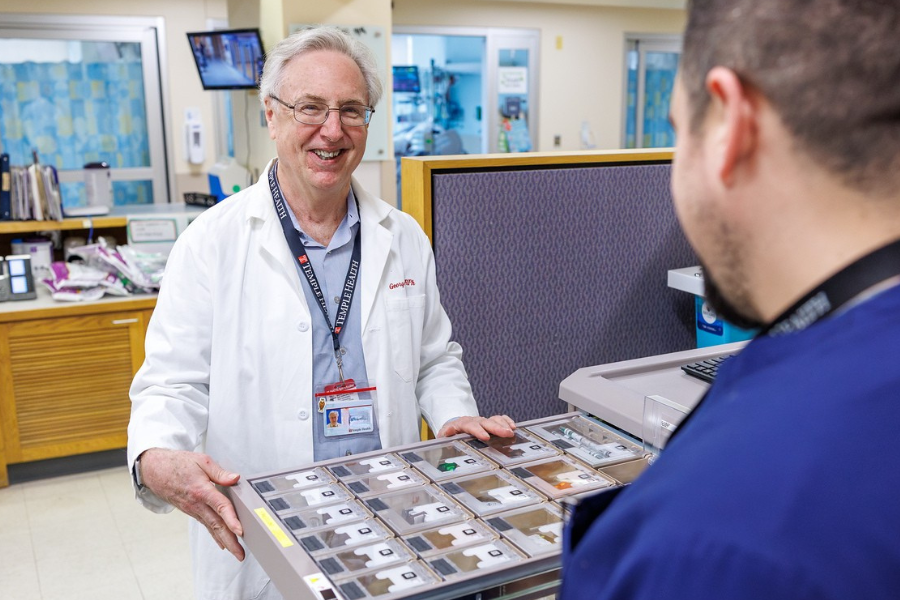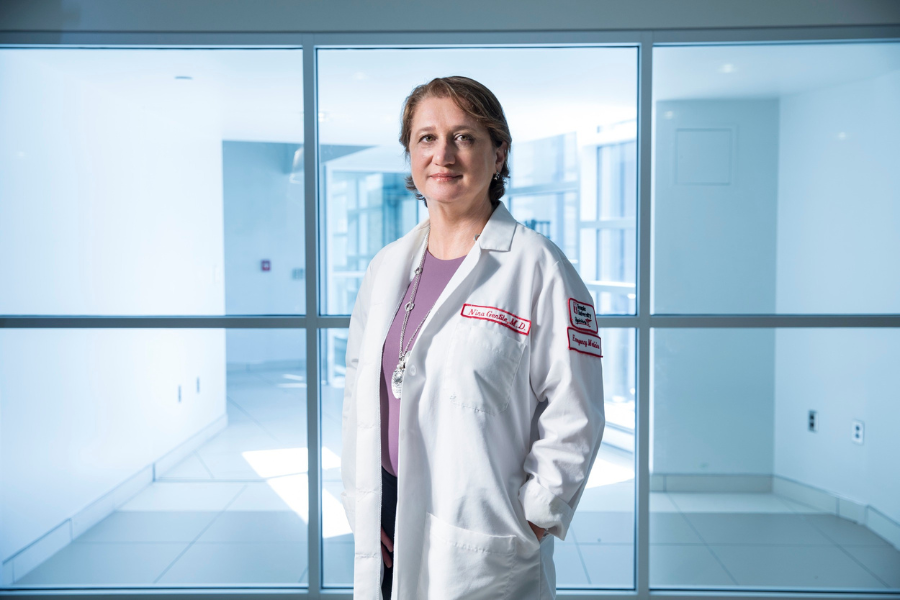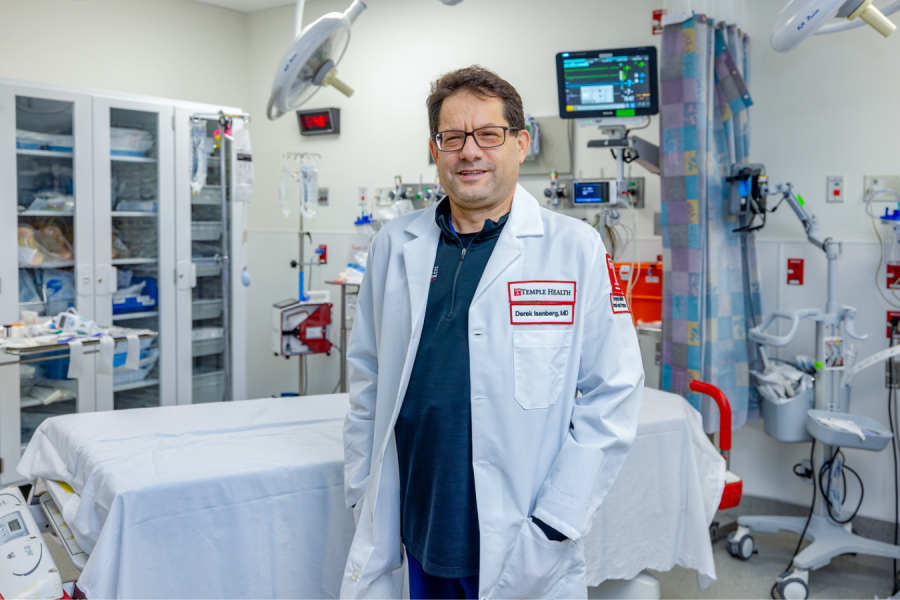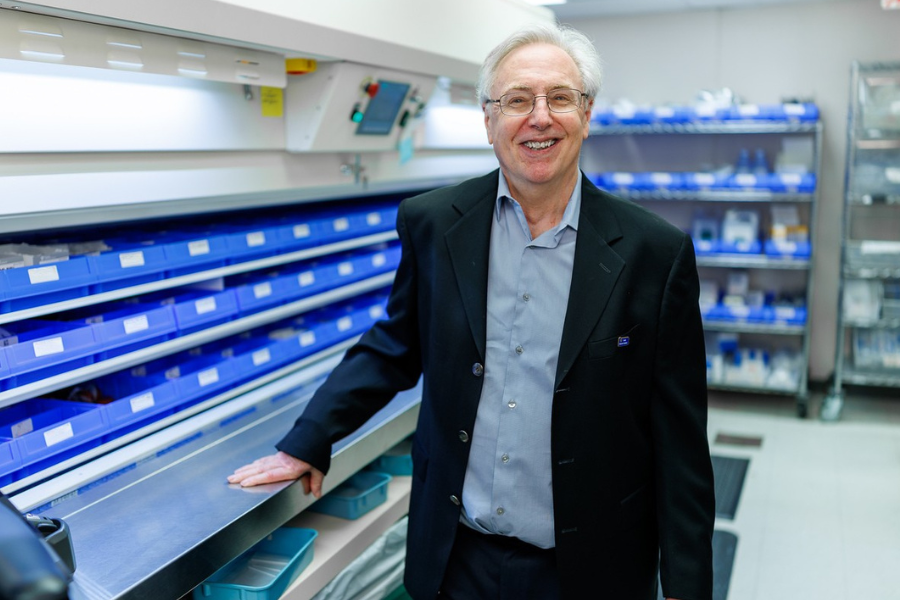Being a patient at a world-class Health System has its benefits—like participating in a leading-edge clinical trial through your community hospital.
That’s why our Department of Emergency Medicine has worked so hard to bring two clinical trials—ARREST pneumonia and Librexia stroke—to TUH-Jeanes Campus. Both studies are currently ongoing at TUH-Main Campus, and expanding them to Jeanes broadens the trials’ participant populations while also giving patients access to the latest treatments.
“Jeanes is the only academic medical center campus in Northeast Philadelphia,” says George Miller, RPh, Clinical Pharmacy Manager at TUH-Jeanes Campus. “Bringing these trials here—and building a sustainable pipeline so we can do the same with other studies in the future—is a way to provide our patients with that highest level of care, as these groundbreaking, and potentially lifesaving, clinical trials will be available close to home.”
Expanding Access to the Latest Trials
The goal of the ARREST pneumonia study is to determine how effectively the combination of an inhaled corticosteroid and a beta agonist prevents acute respiratory failure in hospitalized patients with pneumonia and hypoxemia.
“This is a multi-state, multi-center randomized clinical trial sponsored by The National Institutes of Health (NIH),” says Nina Gentile, MD, Professor and Vice Chair for Research in Emergency Medicine, who is the Principal Investigator (PI) for both trials. “The trial was awarded to Stanford, and sub-awards were provided to 10 sites, and TUH-Main Campus is one of them. Our Main Campus site has been very productive, and when we told the researchers at Stanford that we were interested in expanding the trial to Jeanes, they said, ‘Wow, that’s great.’"
Janssen Pharmaceuticals, the sponsor of the Librexia stroke study, was similarly enthusiastic. “It’s an international trial, and they’re really hoping to have a lot of input from the US,” Dr. Gentile says. “They come to us all the time, asking, ‘What are you doing right? Can you show our other sites?’ When we asked if we could expand the Librexia trial to Jeanes, they took it up the chain and approved it.”
“The Librexia study, which we’re doing in partnership with our Neurology Department, is an outpatient secondary stroke trial,” explains Derek Isenberg, MD, Professor of Emergency Medicine. “That means it’s looking at whether milvexian, an oral anticoagulant, can reduce the risk of future stroke in patients who have already had a stroke.”
Working Together for Our Patients
Part of the motivation for bringing the Librexia stroke and ARREST pneumonia studies to Jeanes was that the campus’ patient population seemed especially well-suited for these particular trials.
“When we looked at the proportion of patients that presented at the Jeanes Emergency Department for pneumonia or stroke, it was very high,” Dr. Gentile says. “We serve more patients at Main Campus, but these Jeanes numbers are substantial. These are exactly the kinds of patients we want to include, and who will really benefit from having access to these treatments.”
And while the study protocols will follow those established at Main Campus, and patient randomization will take place there as well, medication and care itself will be administered at Jeanes. “All of the drugs will be prepared by the Jeanes Campus Pharmacy, and, in the case of the ARREST trial, delivered by our Respiratory Therapists,” Miller explains.
It’s the kind of cross-campus collaboration that significantly helps patients—and showcases the power of integration for the rest of the Health System. “We can’t just think about Jeanes or Main Campus,” Miller reflects. “We have to do the most good for the most patients, and that means working together as one Temple Health.”
IT TAKES TEMPLE HEALTH
